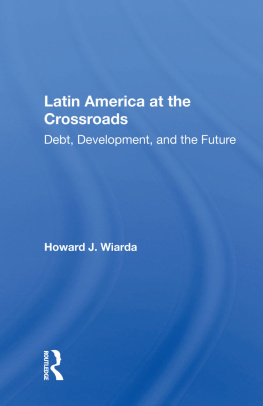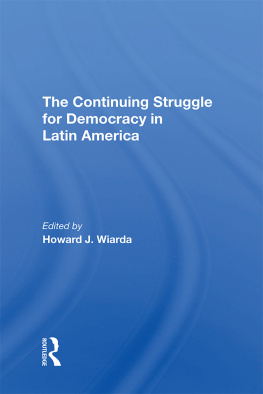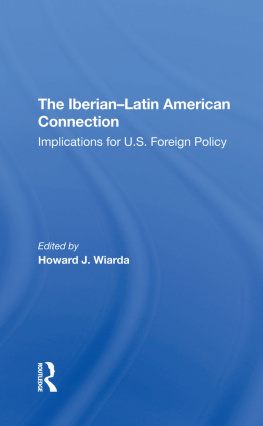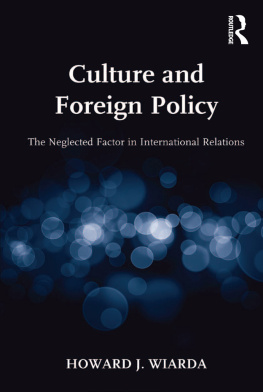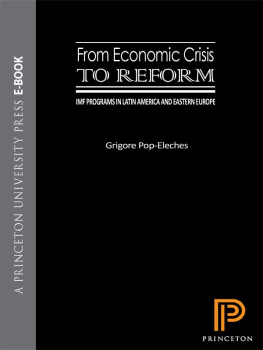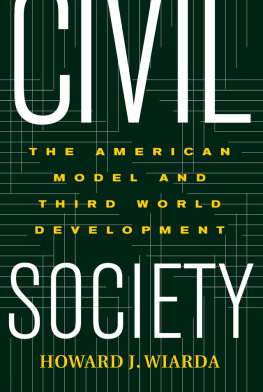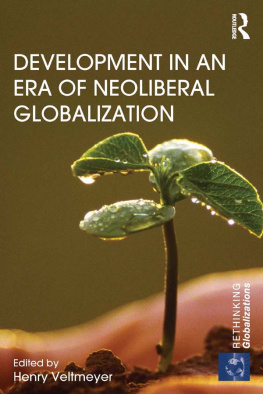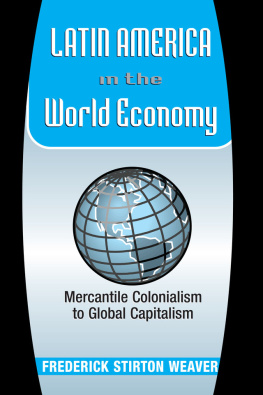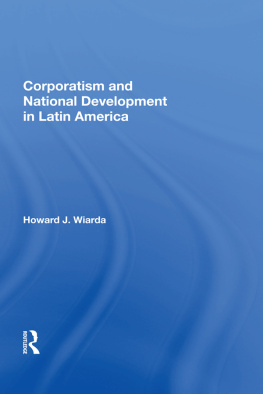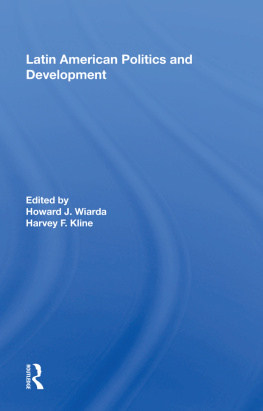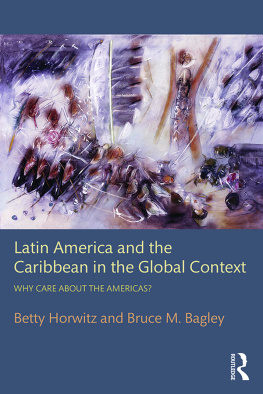About the Book and Author
A provocative and controversial look at Latin America as it stands at a crossroads, this book analyzes the complex economic and social roots of the debt crisis and evaluates the prospects for new development strategies for the 1990s. Dr. Wiarda begins by placing the regional economic crisis in the larger context of technological change, political upheaval, and the international economy. He then explores new choices and realities in inter-American relations and the role international lending agencies can take to assist Latin America in meeting the challenge of the next decade. The author suggests that "smokescreens and mirrors" have obscured the true nature of the crisis and, as a result, have skewed the policy debate.
Howard J. Wiarda is resident scholar and director of the Center for Hemispheric Studies at the American Enterprise Institute for Public Policy Research, Washington, D.C., and also professor of political science at the University of Massachusetts, Amherst. He is the author of The Dominican Republic: A Caribbean Crucible (with Michael J. Kryzanek, 1982); editor of The Continuing Struggle for Democracy in Latin America (1980) and New Directions in Comparative Politics (1985); and coeditor (with Harvey F, Kline) of Latin American Politics and Development (Second Edition, 1985); all have been published by Westview Press.
First published 1987 by Westview Press, Inc.
Published 2018 by Routledge
52 Vanderbilt Avenue, New York, NY 10017
2 Park Square, Milton Park, Abingdon, Oxon OX14 4RN
Routledge is an imprint of the Taylor & Francis Group, an informa business
Copyright 1987 by the American Enterprise Institute for Public Policy Research
All rights reserved. No part of this book may be reprinted or reproduced or utilised in any form or by any electronic, mechanical, or other means, now known or hereafter invented, including photocopying and recording, or in any information storage or retrieval system, without permission in writing from the publishers.
Notice:
Product or corporate names may be trademarks or registered trademarks, and are used only for identification and explanation without intent to infringe.
Library of Congress Cataloging-in-Publication Data
Wiarda, Howard J., 1959
Latin America at the crossroads.
Bibliography: p.
Includes index.
1. Latin AmericaEconomic conditions19452. Latin AmericaSocial conditions19453. Latin AmericaPolitics and government19484. Debts, ExternalLatin America. I. Title.
HC125.W47 1987 330.98'003 86-18997
ISBN 13: 978-0-367-00679-2 (hbk)
This analysis of Latin America's current and ongoing economic, social, and political crisis is intended for several audiences. Although it was originally prepared for the Inter-American Development Bank, it is aimed also at a general reading audience of informed persons who wish to know more about the present crisis in the region. My hope is that academic specialists, foreign policy analysts and practitioners, and those in the commercial banks and international lending agencies will find it useful as well. The analysis is meant for both a United States readership and a Latin American one, and it was written in such a way as to be provocative and stimulate discussion on all sides. My further hope is that out of such discussions ways of resolving Latin America's present crisis can be formulated.
This analysis is part of a series of reports and evaluations, commissioned periodically by the Inter-American Development Bank (IDB), in which the Bank has assessed the state of the Latin American economies, future developmental prospects for the area, and the Bank's role in these processes. The publication of an assessment and update of these earlier reports is particularly appropriate now, because since the last major IDB report was finished, Latin America has undergone the worst recession since the Great Depression of the 1930s, the standard of living in many Latin American countries has retrogressed to 1960s levels, the economies of the area have been devastated, and the future prospects for Latin America appear none too brightindeed, some have even questioned whether Latin America has any future at all,implications that would follow from such dire predictions, cannot be doubted. Hence the chief purpose of this study: to examine Latin America's current economic situation, to assess its politico-economic future, to discuss the policy implications of such an assessment, and to offer recommendations.
The Inter-American Development Bank commissions both external evaluations of Latin America's developmental progress and prospects as well as internal assessments. The legendary Ral Prebisch, in collaboration with Enrique Iglesias, wrote one of the first of these full-length, external reports for the Bank,
The instructions I received were as vague and general as this; at no stage did the IDB tell me what subjects I should cover, let alone what conclusions I should reach. This is, hence, an individual and perhaps idiosyncratic report, and in no sense should it be taken as an official statement of the IDB or as representing necessarily the Bank's position on any of the issues discussed. I make this point emphatically both because it is important to establish the intellectual integrity and independence of the report that follows and because I wish to absolve the Bank of any responsibility for the commentary offered. In no sense is the report an apology for Bank policy and philosophy; at several points, in fact, the report is critical of the role and activities of the international lending agencies. I hope these criticisms are fairly stated and constructive, however, as my purpose was not to tear down these agencies but to improve their operations by being critical where that seemed necessary and supportive where that was appropriate, while offering my own interpretations along the way. Essentially this report was an entirely autonomous effort, obviously carried out in consultation with the IDB but representing a completely independent approach, coverage, and set of conclusions. For better or worse, the author bears sole responsibility for what follows, not the Bank.
In preparing this report I nonetheless received information from and the advice and wise counsel of numerous individuals. Preinterview promises of anonymity prevent me from mentioning them by name here. In the United States I conducted interviews in the Department of the Treasury, in Congress, in the State Department, at the Agency for International Development, at the White House, and in the central offices of the Inter-American Development Bank. I also interviewed IDB officials in Europe and in the Bank's field offices in Latin America. On two trips to the region in 1985 I interviewed numerous Latin American business, labor, government, and academic sources. Many U.S. Embassy officials in Mexico, Costa Rica, Peru, Argentina, and Brazil also gave unsparingly of their knowledge, time, and understanding. I would like nothing better than to acknowledge their contributions by mentioning each one's name in print here, but I am fearful that not all the comments offered in this report will be entirely appreciated by all those who read it, and I do not wish to put anyone's role or position in jeopardy. Prudence and a respect for my sources dictate that names not be mentioned, although my debt and gratitude to them are in no way diminished by that fact. The persons whose names I can mention, however, and to whom thanks are also due include my secretary Louise Skillings, my research assistant Janine Perfit, and Dr. leda Siqueira Wiarda, who read and commented on an earlier version of this report. None of these individuals or organizations, it should be said, bear any responsibility for the final product; that rests solely with the author.

